The Films of John Sayles
by dan heaton
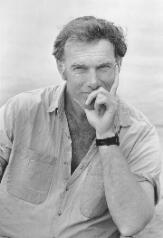 This is the third in a series of essays covering a wide array of directors and stretching across different genres and countries. The primary goal is to delve into the films of the great minds of cinema and discover some lesser-known works. The films discussed will range from classics that almost everyone knows to smaller works that have disappeared onto video shelves over the years. The one common factor is that I will have seen none of the movies before conducting this study. Hopefully, that element will maintain a freshness to each piece that dissipates with preconceived notions. I will usually try to cover different time periods within the director's career for comparison, but it will vary with each one chosen.
This is the third in a series of essays covering a wide array of directors and stretching across different genres and countries. The primary goal is to delve into the films of the great minds of cinema and discover some lesser-known works. The films discussed will range from classics that almost everyone knows to smaller works that have disappeared onto video shelves over the years. The one common factor is that I will have seen none of the movies before conducting this study. Hopefully, that element will maintain a freshness to each piece that dissipates with preconceived notions. I will usually try to cover different time periods within the director's career for comparison, but it will vary with each one chosen.
Introduction
Born in 1950, John Sayles began his film career as a screenwriter for the legendary Roger Corman in the late '70s. He used this money to finance his first picture, The Return of the Secaucus Seven, in 1980. His reputation quickly increased and it led to his first and only studio-financed picture, 1983's Baby It's You. Bad experiences while editing this movie caused him to shun directing for Hollywood, which became possibly the best decision he ever made. He proceeded to write countless memorable films, including the Black Sox story Eight Men Out, urban drama City of Hope, and Alaskan thriller Limbo. His most recent film was Sunshine State, which depicted the encroachment of resort developers into a small Florida town and provided a group of compelling stories. Edie Falco, Angela Bassett, Timothy Hutton, and James McDaniel starred.
Films
The Brother From Another Planet (1984)
Starring Joe Morton, Daryl Edwards, Steve James, Leonard Jackson, Maggie Renzi, Rosetta LeNoire, David Strathairn, and Bill Cobbs. Written and Directed by John Sayles.
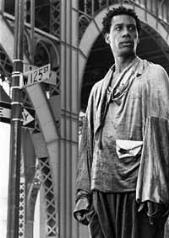 Working with an extremely low budget, Sayles crafts a surprisingly effective science fiction comedy about an alien who crashes into modern-day New York City. Joe Morton stars as The Brother, a mute alien who encounters an array of quirky individuals while exploring this unfamiliar planet. With the exception of his oddly shaped feet, the Brother resembles other human beings, which allows him to fit nicely into the urban society. Meanwhile, two alien bounty hunters (Sayles and Strathairn) arrive to capture the escaped alien and remove him from Earth.
Working with an extremely low budget, Sayles crafts a surprisingly effective science fiction comedy about an alien who crashes into modern-day New York City. Joe Morton stars as The Brother, a mute alien who encounters an array of quirky individuals while exploring this unfamiliar planet. With the exception of his oddly shaped feet, the Brother resembles other human beings, which allows him to fit nicely into the urban society. Meanwhile, two alien bounty hunters (Sayles and Strathairn) arrive to capture the escaped alien and remove him from Earth.
While this film is only mildly successful as a science-fiction piece, it does work as a comedy and character study. Morton takes a possibly one-note character and makes him charming without uttering a single word. Sayles developed this project very quickly when financing fell through on Matewan, but his ability to craft memorable characters still remains strong. Some of the most memorable people appear for only brief moments, which showcases the actors' talents and Sayles effective storytelling. While not one of his best films, The Brother From Another Planet provides an engaging viewing experience.
Passion Fish (1992)
Starring Mary McDonnell, Alfre Woodard, Lenore Banks, Vondie Curtis-Hall, Will Mahoney, David Straitharn, and Leo Burmester. Written and Directed by John Sayles.
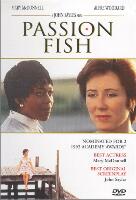 May-Alice Culhane (McDonnell) enjoys a prominent role in a popular soap opera and has apparently moved beyond her small-town Southern roots. However, everything changes drastically when a car accident places her permanently in a wheelchair. Extremely angry, she returns to Louisiana and terrorizes every live-in nurse that arrives. The equally stubborn Chantelle (Woodard) becomes her last option, and May-Alice immediately wants no part of this nurse. After some initial confrontations, they begin to develop a strong emotional bond that both of them need in their lives. Additional supporting characters enter the mix, including Sayles trooper David Straitharn as a local fisherman with eyes for May-Alice. Instead of following the typical path and usual dramatic moments, this charming tale allows us to connect with the plights of both lead characters.
May-Alice Culhane (McDonnell) enjoys a prominent role in a popular soap opera and has apparently moved beyond her small-town Southern roots. However, everything changes drastically when a car accident places her permanently in a wheelchair. Extremely angry, she returns to Louisiana and terrorizes every live-in nurse that arrives. The equally stubborn Chantelle (Woodard) becomes her last option, and May-Alice immediately wants no part of this nurse. After some initial confrontations, they begin to develop a strong emotional bond that both of them need in their lives. Additional supporting characters enter the mix, including Sayles trooper David Straitharn as a local fisherman with eyes for May-Alice. Instead of following the typical path and usual dramatic moments, this charming tale allows us to connect with the plights of both lead characters.
Nominated for countless awards including two Oscars (screenplay and actress), this film shines by utilizing Sayles' penchant for remarkable storytelling. The basic plot summary would make you expect a generic, movie-of-the-week type of movie. Luckily, Sayles incorporates a slow, relaxed pace that envelops us into the bayou environment. McDonnell pulls no punches and reveals all the tough emotions of Mary-Alice. Woodard stands up to her wonderfully and also provides a stunning performance. Rarely in their careers have these actresses found roles this rewarding and offering such depth. Sayles has directed better films, but has rarely crafted more defined characters throughout his lengthy career.
The Secret of Roan Inish (1994)
Starring Jeni Courtney, Dave Duffy, Mick Lally, Eileen Colgan, Richard Sheridan, Fergal McElherron, Brendan Conroy, and John Lynch. Based on a book by Rosalie K. Fry. Screenplay by John Sayles. Directed by John Sayles.
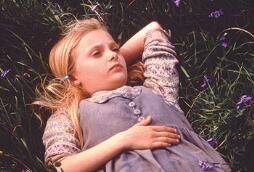 On the gorgeous West Coast of Ireland in 1946, young Fiona (Courtney) must go and live with her grandparents near the island of Roan Inish. They once resided at this place, and have faced extreme difficulties since the move to the mainland. Fiona hears magical stories about Selkies, seals able to transform into humans, and her young mind wonders if they could be true. Amidst the attractive landscape and wildlife, she joins her cousin Eamon (Sheridan) to discover the secrets of Roan Inish. Although a bit slow-moving, this tale makes the magical entities believable and never moves too far into the world of fantasy.
On the gorgeous West Coast of Ireland in 1946, young Fiona (Courtney) must go and live with her grandparents near the island of Roan Inish. They once resided at this place, and have faced extreme difficulties since the move to the mainland. Fiona hears magical stories about Selkies, seals able to transform into humans, and her young mind wonders if they could be true. Amidst the attractive landscape and wildlife, she joins her cousin Eamon (Sheridan) to discover the secrets of Roan Inish. Although a bit slow-moving, this tale makes the magical entities believable and never moves too far into the world of fantasy.
Based on Rosalie Fry's novel The Secret of the Ron Mor Skerry, The Secret of Roan Inish is officially a "children's film," but it wavers considerably from the bland mainstream films often released today. The story occurs from the kids' point of view, but the events are never diminished to make them easier to understand. Although the deliberate pace and grand landscape made me a bit sleepy, I definitely recognize the success of this picture. Sayles has once again tackled an entirely new environment and created a worthwhile movie. The actors resemble people I would expect to find in 1940s Ireland, which once again showcases the writer/director's abilities to accurately present a detailed setting.
Men With Guns (1997)
Starring Fedirico Lupi, Damian Delgado, Dan Rivera Gonzalez, Tania Cruz, Damian Alcazar, Mandy Patinkin, and Kathryn Gordy. Written and directed by John Sayles.
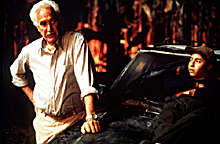 "Nobody refuses the men with guns." This dire quotation summarizes the finding of Dr. Fuentes (Lupi), who is searching through the rain forests of an unnamed Central American country for his lost medical students. They had entered the villages to help the people in fighting disease and common injuries, but the doctor has lost contact with them. During his weary journey, Dr. Fuentes encounters all types of "men with guns" and their tragic aims are virtually universal. He also joins with a small group of travelers that include a fleeing soldier, a former priest, a young boy, and a traumatized woman. Hopes rise and fall within a group of intriguing sequences that lead to the inevitable conclusion. Presented in Spanish, this story feels entirely authentic while retaining our interest in the characters' troubling plights. While viewing the film, I searched for a positive solution to the problems depicted, but realized that it all comes back to the destructive power of weapons in an otherwise genial society.
"Nobody refuses the men with guns." This dire quotation summarizes the finding of Dr. Fuentes (Lupi), who is searching through the rain forests of an unnamed Central American country for his lost medical students. They had entered the villages to help the people in fighting disease and common injuries, but the doctor has lost contact with them. During his weary journey, Dr. Fuentes encounters all types of "men with guns" and their tragic aims are virtually universal. He also joins with a small group of travelers that include a fleeing soldier, a former priest, a young boy, and a traumatized woman. Hopes rise and fall within a group of intriguing sequences that lead to the inevitable conclusion. Presented in Spanish, this story feels entirely authentic while retaining our interest in the characters' troubling plights. While viewing the film, I searched for a positive solution to the problems depicted, but realized that it all comes back to the destructive power of weapons in an otherwise genial society.
Men With Guns illustrates one of the most prominent examples of Sayles' true independence from the Hollywood marketplace. Studio executives would have insisted that he lower the doctor's age, include a love interest, and incorporate at least several lengthy chase scenes. Sayles' picture is a much more effective and disturbing creation than the typical entry because it gives us time to understand each individual. Dr. Fuentes offers Sayles a vehicle that allows him to make his point while injecting considerable human interest. Easily one of his best stories, this film is required viewing for cinema lovers searching for more depth than the latest marketing juggernaut.
Conclusion
John Sayles provides a perfect example of an independent director willing to take chances and travel his own path without worrying about mainstream success. His filmmaking talents have been proven numerous times, and undoubtedly he could find larger financial success by slightly compromising his principles. Instead, Sayles continues to draw high-end, talented actors to his films because he creates three-dimensional characters. This is especially true of strong, adult female roles, which still remain a difficult find in serious dramas. Prime examples of this talent are the recent Sunshine State and Passion Fish, which place women at the forefront and make them the story's primary characters. Far from being a writer of dry dramas, Sayles also possesses a witty style that provides humor through realistic situations. His works remain both technically sound and emotionally gripping while using very modest budgets. The films mentioned above provide just a small example of this man's diverse talents. Sayles deserves to be mentioned in the same breath as renowned directors like Scorsese and Coppola and continues to thrive with each successive creation.
Copyright (c) 2005 erasing clouds |
|